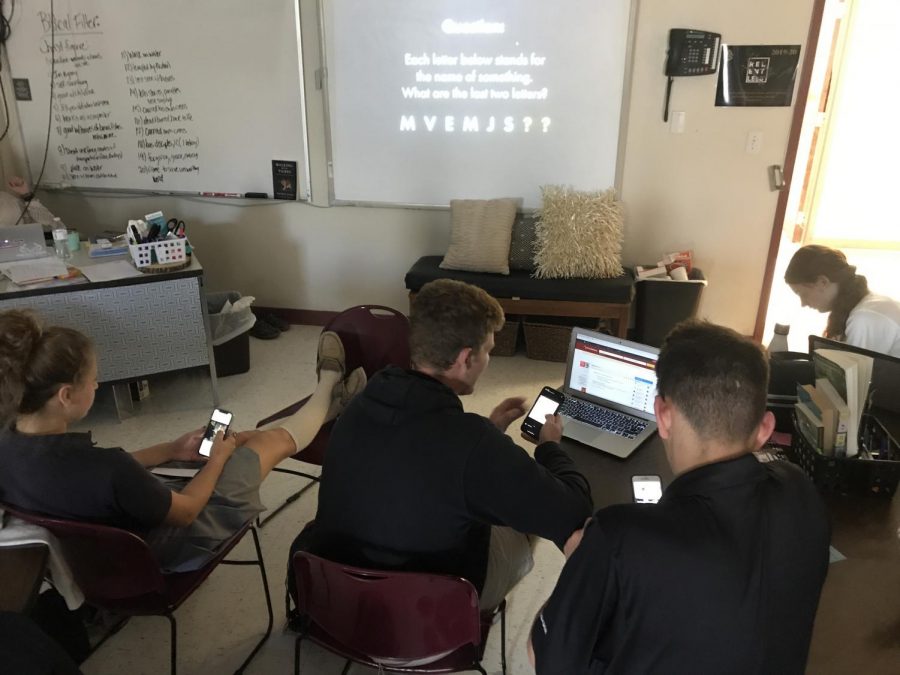Social Media: Hurt or Help?
September 3, 2019
Whether it was television in color or the invention of the Atari gaming system, each generation has had its craze. Millennials and Gen Z are no exception. However, they have swapped antennas and joysticks for cell phones and laptops that enable them to do what their ancestors may have believed to be impossible. But is the existence of social media strictly beneficial?
If you were to ask a stranger on the street if they had social media, the odds are extremely high that they do. According to statistics, almost 80% of the US population are active on social media or have created an account. It has become so prevalent in society that many people make a living just by being on social media platforms. Many people even fear deleting their apps because so much of the world is circulated through it.
According to studies done by the Anxiety and Depression Association of America, excessive use of social media has, in some cases, led to mental disorders. Experts found that about 20% of users cannot refrain from usage for more than three hours. This compulsion is called social media anxiety disorder. This is just one example; many people have attributed anxiety and depression partially to social media. Aside from the clinically diagnosed side effects, there are also some more common, yet still harmful effects.
A major example of this is the unrealistic standards created by social media. In response to how the applications have harmed her mindset, Junior Carolyn Simpson said that many applications have the power to disrupt her relationship with God. “I don’t think it’s healthy,” Simpson said, “because it has lead me to sometimes compare myself to other people.”
The culture of comparison that exists due to the constant portrayal of what social influencers paint as the“perfect life” has led others to believe that their own lives are ordinary or inferior. Apps such as Instagram tend to highlight only the best parts of someone’s life rather than the normal parts of our own. This content is hard to ignore, especially when we live in a culture where people are constantly striving for more. The addiction for more creates a culture where many people have trouble staying off of the apps.
Andrew Williams, a senior at Northlake, says that he always finds himself clicking on social media apps for no reason at all. He admits, “eventually I had to set a limit on the apps, which helps a lot.” Many teenagers have established this habit, but when interviewing students on Northlake’s campus, there appears to be a recent trend of users deleting their accounts.
Dallas West says that he deletes his accounts all the time, but usually re-downloads them because he “hates being bored.” This stance is valid considering the entertainment cell phones can provide, along with other helpful functions.
There are several different reasons to keep the apps, communication being one of them. Senior Emma Hubert says that apps are the way she communicates with her friends. Media programs, like Facebook, are connecting family members and friends from around the world. They are creating both business and relationship opportunities, providing information for those who need it, and keeping the world updated on the latest news.
The general consensus is that the world of social media has many pros and many cons. If the apps are going to influence you, let it be for the better. And if you know you are being hurt by it, consider deleting it. You control the app, the app does not control you.


Jorg Diblorb • Mar 6, 2020 at 1:31 pm
Wow, this is such an impactful article. Great work McKenzie. Excited to see more pieces.
Emma Hubert • Sep 5, 2019 at 3:17 pm
Beautiful article I’m so proud
Abbey Long • Sep 5, 2019 at 2:47 pm
I love this!! Amazing job Hal 🙂 you’re such a talented writer!
Turtle Lurken • Sep 5, 2019 at 1:55 pm
I loved this article!
Payton Humes • Sep 5, 2019 at 1:42 pm
i’m like ur number one fan cheers
Hannah Palencia • Sep 5, 2019 at 1:41 pm
DOG this is so dope. social media…..thats deep